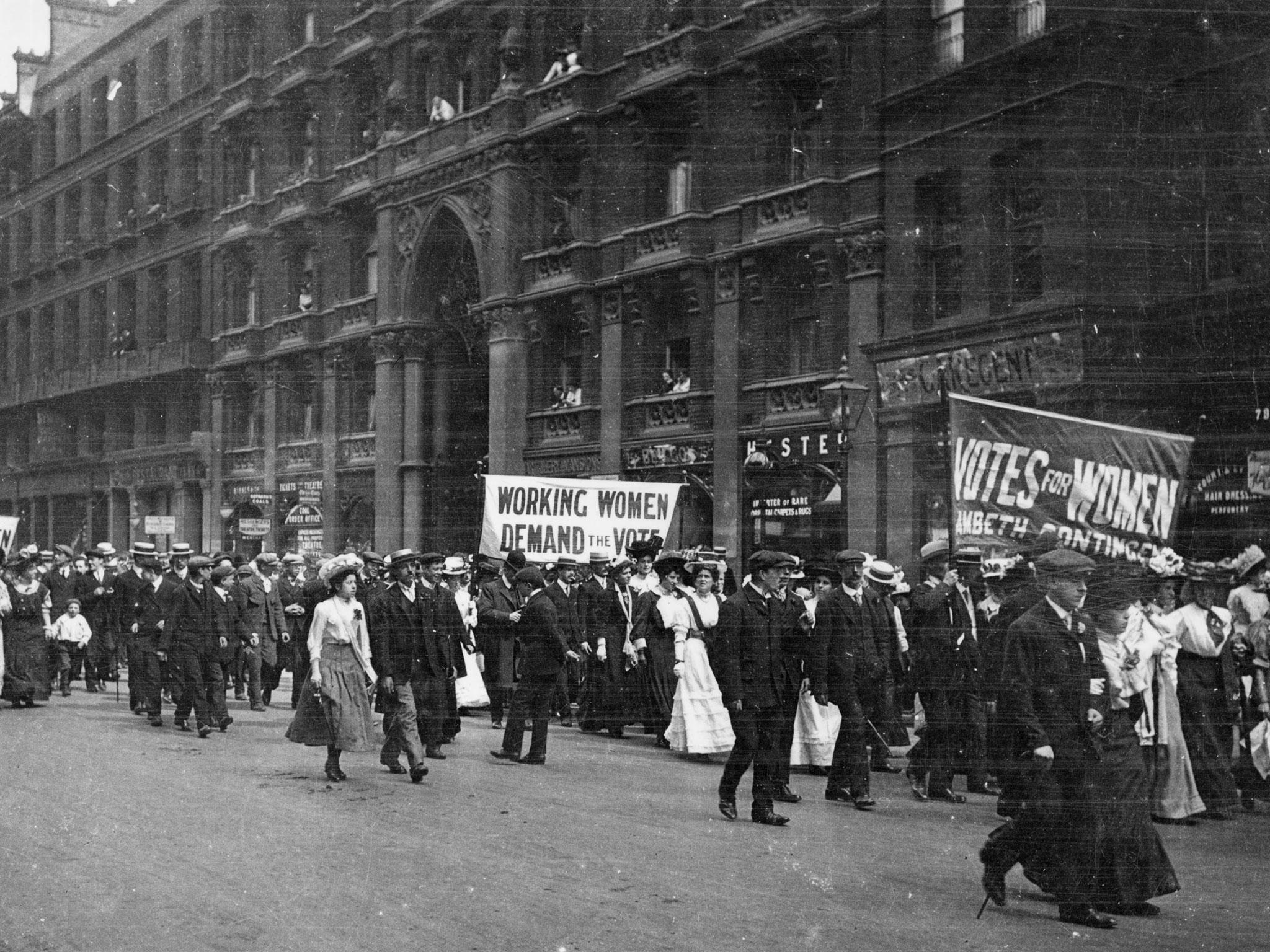The Hourglass Factory by Lucy Ribchester, book review: Suffragette romp with a moral message
Fine flourishes of historical detail are marred by a lack of finesse

This first offering from the splendidly named Lucy Ribchester is a near-500-page whopper of a novel best described as a suffragette romp with a moral message at its centre.
Expect less a forensic examination of the actions of the WSPU in the years before the First World War and more a pastiche of Edwardian society weary – at all levels – of the women enduring brutal injustice to obtain the basic right to vote.
It is November 1912 and cub reporter Francesca “Frankie” George, frustrated at being fobbed off as a ghostwriter for the Ladies’ Home page of the London Evening Gazette, her first Fleet Street job, is hankering after a big story with which to cut her journalistic teeth,
It arrives in the form of the disappearance of a mesmerising trapeze artist, the black-clad Ebony Diamond, whose acrobatics have made her useful for dramatic publicity stunts on behalf of the suffragette movement. Two murders preceded Ebony’s abrupt vanishing at the end of her slowdive stage act one night at the Coliseum – Annie Evans, a seamstress dressed in Ebony’s distinctive clothes , and Olivier Smythe, proprietor of the upmarket corset shop she frequented.
This second killing is the most gruesome, the man so tightly laced into a corset that his internal organs exploded. As Frankie, together with the mysteriously aristocratic Milly, an associate of Ebony’s who performs with a snake and goes under the stage name of Salome, and the Artful Dodger-like urchin, Liam, are to discover, the corset was poisoned and Smythe, like Annie, was not the intended victim. The trio’s search for Ebony runs in tandem with that of a decent-hearted police officer, Inspector Primrose, and his reluctant heading-up of the suffragette division at Scotland Yard. Primrose is a far cry from his thuggish sergeants and the obnoxious chief of police, whose basic contempt for the suffragettes masks a nasty, all-pervasive misogyny.
Perhaps inevitably, the story stretches credulity to include a Guy Fawkes-inspired plot designed to frame the WSPU and smash the organisation for good; corruption at the highest echelons of power, and the little-known vogue for “tightlacing”, a corset fetish carried out by both genders for sexual pleasure. Ribchester is excellent at evoking the rancid, dank London of November fog and greasy boarding houses, omnibuses and hansom cabs, empty stomachs barely filled by food gobbled on the move – devilled kidneys, fried pigs’ ears, washed down with Old Tom gin. She is good, too on the class polarisation that dogged the WSPU and the griminess and thrills of writing for the scandal sheets versus serious journalism. Her list of sources at the end of the book is interestingly varied. Accounts of the violence meted out to the suffragettes and their supporters, Holloway prison’s notorious “second division” and horrific force – feeding of those on hunger strike – are not glossed over.
Yet the novel feels rushed and overlong, with little character development. Frankie could be fascinating – she dresses in men’s clothes – yet her sexual preferences remain unexplored. The book rattles along at a fair old pace which stops just short of farcical. Though undoubtedly tempting for jacket copy blurb, it is hazardous to use Sarah Waters as a comparison, and it only serves to highlight the lack of finesse in this novel. Neither does it compare to Waters’s superb structure and language. But it is plausible entertainment: fine flourishes from historical incidents in its prologue and epilogue making for a memorable start and finish.
Subscribe to Independent Premium to bookmark this article
Want to bookmark your favourite articles and stories to read or reference later? Start your Independent Premium subscription today.

Join our commenting forum
Join thought-provoking conversations, follow other Independent readers and see their replies